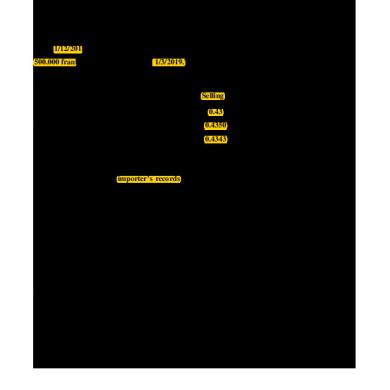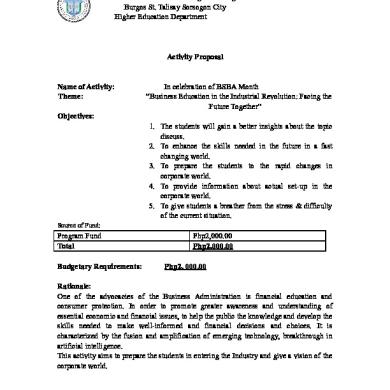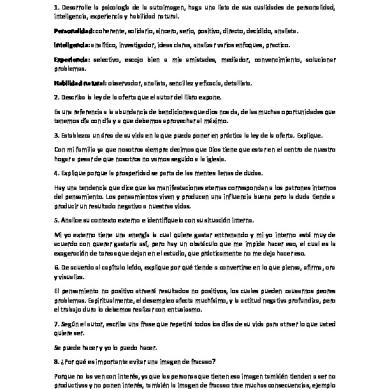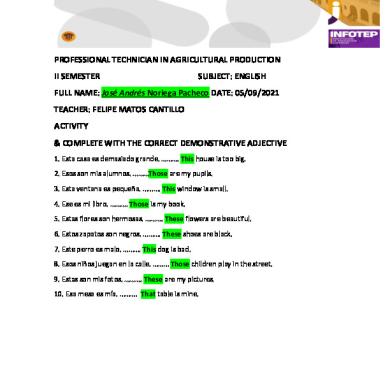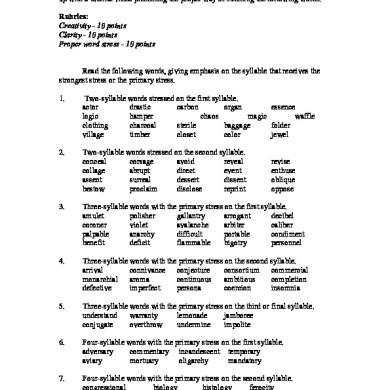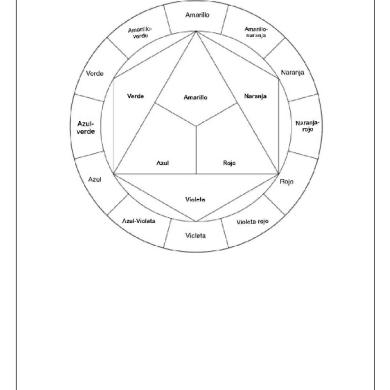* The preview only shows a few pages of manuals at random. You can get the complete content by filling out the form below.
Description
Republic of the Philippines CAMIGUIN POLYTECHNIC STATE COLLEGE Balbagon, Mambajao, Camiguin INSTITUTE OF TEACHER EDUCATION GRADUATE SCHOOL Assignment NAME: RUTH CRYSTAL D. PEÑALOSA
I. Research on the important educational theorist I. Western/European 1. Confucius Philosophy Confucius had a holistic view of learning and education, which centered on cultivation of virtue and character. Not only did Confucius insist that cultivation of virtue is integral to the development of self, but he also believed that it is of great importance for a good society. For him, virtuous people are necessary for the well-functioning of a society. Confucius believed in the transformation of education for one to become virtuous. Confucian learning was seen as the process where individuals grow in virtue and cultivate human goodness while becoming in tune with other people. Confucius taught that learning is not simply making oneself knowledgeable, but also involves acquiring moral values such as jen (humanity) and yi (righteousness). Only a person of true humanness could show empathy and have the courage to become a righteous person. In addition to disseminating knowledge and enhancing intellectual development, universities and colleges must make higher education relevant and purposeful, and impart to their student’s ethical values and virtues such as compassion, justice, and concern for others. A society that ignores the development of virtues and moral character faces catastrophic consequences. The present economic and financial challenges pose a real threat to our nation and draw the attention to the importance of fostering ethical and moral values. Without the cultivation of virtue and ethics, individuals become irresponsible and fail to balance self-interest and social responsibility. 2. Socrates Philosophy Socrates had a lot to say about knowledge and wisdom. On the topic of self-education, he believed that: Wisdom begins in admitting your own
ignorance, Self-knowledge is the ultimate virtue, People can arrive at truth through questioning. Socrates believed that knowledge was the ultimate virtue, best used to help people improve their lives. “The only good is knowledge and the only evil is ignorance,” he said. Socrates believed that people made immoral choices because they did not have knowledge. Unless they examined their lives and gained wisdom, people would continue to make mistakes in ignorance.
3. Plato Philosophy Plato regards education as a means to achieve justice, both individual justice and social justice. According to Plato, individual justice can be obtained when each individual develops his or her ability to the fullest. In this sense, justice means excellence. For the Greeks and Plato, excellence is virtue. According to Socrates, virtue is knowledge. Thus, knowledge is required to be just. From this Plato concludes that virtue can be obtained through three stages of development of knowledge: knowledge of one's own job, self-knowledge, and knowledge of the Idea of the Good. According to Plato, social justice can be achieved when all social classes in a society, workers, warriors, and rulers are in a harmonious relationship. Plato believes that all people can easily exist in harmony when society gives them equal educational opportunity from an early age to compete fairly with each other. Without equal educational opportunity, an unjust society appears since the political system is run by unqualified people; timocracy, oligarchy, defective democracy, or tyranny will result. 4. Aristotle Philosophy Aristotle has a different view. To him the aim of education was not only the attainment of knowledge but also the attainment of happiness or goodness in life. He believed that virtue lies in the attainment of happiness or goodness. He has divided ‘goodness’ into two categories ‘goodness’ of intellect and goodness of character. The former can be produced and increased by teaching and is the product of training and experience. The latter is the result of habit, and it can be attained by the formation of good habits. Aristotle’s definition of education is the same as that of his teachers, that is, the “the creation of a sound mind in a sound body”. Thus to him the aim of education was the welfare of the individuals so as to bring happiness in their lives.
5. Quintilian Philosophy Quintilian believed that knowledge was not inherent and could only be acquired through proper education; that is, knowledge exists, but must be attained through proper training and learning. Quintilian believed that the proper training one must undertake to possess knowledge is the art of oratory. Quintilian believed that all forms of knowledge were equally important and that speaking, writing and reading were the most dominant of skills. He illustrated that talent, good health and valuable attributes are "of no profit without a skilled teacher, persistence in study, and much continued practice in reading, writing and speaking. " Learning to speak well was so important that Quintilian advised that upon the child's birth, the parent must "make sure that the nurses speak properly" for the parent must "devote the keenest possible care, from the moment he becomes a parent, to fostering the promise of an orator to be" 6. Aquinas Philosophy For Aquinas, God is the central aim of education and He is at once our Teacher. This does not mean that human beings cannot teach each other, but it shapes what we understand by knowledge and what we mean when we say that someone has learnt. Aquinas shows himself to be anything but doctrinaire in his restless search for truth and wisdom; sometimes he is a rationalist and sometimes an empiricist. He never loses his enthusiasm to know and to understand. In this he is the model teacher. St. Aquinas argues that happiness is ultimate goodness or the highest end of virtuous life as Aristotle’s argument in his Nicomachen Ethics. However, both philosophers have different views on when perfect happiness can be achieved. Aristotle asserts that happiness (Greek, eudaimonia) is being in the state of maximum well being, and that happiness can be achieved in this life through virtuous life, while Aquinas argues that perfect and true happiness (Latin, beatitudo) can be attained with the beatific vision of God in afterlife. 7. Erasmus Philosophy He embraced the humanistic belief in an individual’s capacity for self-improvement and the fundamental role of education in raising human beings above the level of brute animals. The thrust of Erasmus’ educational programme was the promotion of docta pietas, learned piety, or what he termed the “philosophy of Christ”. If a general label is needed, Erasmus’ thought is best described as “Christian
Humanism”, that is, a philosophy of life combining Christian thought with classical traditions. 8. Luther Philosophy Although Luther advocated the study of Classical languages, he believed that the primary purpose of such an education—in marked distinction to the aims of the humanists—was to promote piety through the reading of the Scriptures in their pure form. “Neglect of education will bring the greatest ruin to the Gospel.” Accordingly, Luther argued that education must be extended to all children—girls as well as boys— and not simply to a leisured minority as in Renaissance Italy. He wanted to create educational institutions that would be open to the sons of peasants and miners, though this did not mean giving them political representation. II. Research also on the following A. Frederick the Great Prussia’s education system was seen as one of the best in Europe. Frederick laid the basic foundations of what would eventually became a Prussian primary education system. In 1763, he issued a decree for the first Prussian general school law based on the principles developed by Johann Julius Hecker. In 1748, Hecker had founded the first teacher’s seminary in Prussia. The decree expanded the existing schooling system significantly and required that all young citizens, both girls and boys, be educated by mainly municipality-funded schools from the age of 5 to 13 or 14. Prussia was among the first countries in the world to introduce tax-funded and generally compulsory primary education, although it took several decades before universal education was successfully enacted. B. Descartes Known as the “father of modern philosophy,” Frenchman Rene Descartes (1596-1650) spent his life immersed in the rigorous study of all things metaphysical and mathematical. Descartes uses the metaphor of a tree to discuss what knowledge is worth learning. He says that "the whole of philosophy is like a tree whose roots are metaphysics, whose trunk is physics, and whose branches, emerging from the trunk, are all the other sciences, which may be reduced to the three principal ones, namely, medicine, mechanics, and morality.” According to Descartes, knowledge is “conviction based on a reason so strong that it can never be shaken by a stronger reason” C. Voltaire
Voltaire believed that everyone should have an education, (all men, not women). he also believed that the church was teaching the wrong idea or not even teaching this intellectually, voltaire also recognized that education is the way to find the truth. Voltaire believed above all in the efficacy of reason. He believed social progress could be achieved through reason and that no authority—religious or political or otherwise —should be immune to challenge by reason. He emphasized in his work the importance of tolerance, especially religious tolerance. D. Jean-Jacques Rousseau Rousseau’s theory of education emphasized the importance of expression to produce a well-balanced, freethinking child. He believed that if children are allowed to develop naturally without constraints imposed on them by society they will develop towards their fullest potential, both educationally and morally. This natural development should be child-centered and focused on the needs and experiences of the child at each stage of development. Rousseau is known as the father of early childhood education. As a result of his educational viewpoint, early childhood education emerged as a child-centered entity rich in unlimited, sensory-driven, practical experiences. Active participation in drawing, measuring, speaking, and singing also emerged as a result of Rousseau’s educational viewpoint. Today, many elements of Rousseau’s educational principles remain as a dominant force in early childhood education. E. How Johann Friedrich Herbart refined Pestalozzi’s theory Johann Friedrich Herbart’s In Herbart’s own words, teaching is the ‘central activity of education’. His own thinking, personal experience and experimentation convinced Herbart of the astonishing effects of educational teaching: the individual who acquires a ‘versatile range of interests’ through teaching will ‘be capable’ of doing with inner ease everything that he ‘wishes’ to do after ‘mature reflection’. He will always keep his ethical ideal clearly in mind and, in his progress towards the attainment of that ideal, he will be able to rely on his own pleasure in further learning and on the dependable ‘strength of his own character’. Herbart described two contrasting routes of pedagogical reflection. The first—that of analytical-pedagogical thought—begins with his own experience and experimentation. It leads initially to empirical pedagogics and then on to a philosophical theory of education. This route enables the concepts which dominate the range of experience of the
person who starts out as a layman to be ‘explained’ in increasing depth and to be ‘made clear’ through an on-going process of philosophical 4 reflection. This route of pedagogical thinking makes philosophy dependent, if only partially, on pedagogics. The second route, that of speculative thinking establishing a synthesis, starts out from the principles of a philosophical system which already exists and develops a theoretical and practical doctrine of education from them. In this way, pedagogics became dependent on philosophy, and, in particular, on psychology and ethics. In the two routes of pedagogical thinking, the ‘ends’ and the ‘means’ of education are both discussed. Friedrich Herbart refined Pestalozzi’s theory In Herbart’s theory of education—known as Herbartianism—was set out principally in two works, Pestalozzis Idee eines A B C der Anschauung (1802; “Pestalozzi’s Idea of an A B C of Sense Perception”) and Allgemeine Pädagogik (1806; “Universal Pedagogy”), which advocated five formal steps in teaching: (1) preparation, a process of relating new material to be learned to relevant past ideas or memories in order to give the pupil a vital interest in the topic under consideration; (2) presentation, presenting new material by means of concrete objects or actual experience; (3) association, thorough assimilation of the new idea through comparison with former ideas and consideration of their similarities and differences in order to implant the new idea in the mind; (4) generalization, a procedure especially important to the instruction of adolescents and designed to develop the mind beyond the level of perception and the concrete; and (5) application, using acquired knowledge not in a purely utilitarian way, but so that every learned idea becomes a part of the functional mind and an aid to a clear, vital interpretation of life. This step is presumed possible only if the student immediately applies the new idea, making it his own. III. Research on the theorists of this period A. Pestalozzi Johann Heinrich Pestalozzi “The Father of Elementary Education” “You plant a tiny seed in the ground; in that seed lies the whole nature of the tree” – Johann Heinrich Pestalozzi. To Pestalozzi the individuality of each child is paramount; it is something that has to be cultivated actively through education. He opposed the prevailing system of memorization learning and strict discipline and sought to replace it with a system based on love
and an understanding of the childs world. His belief that education should be based on concrete experience led him to pioneer in the use of tactile objects, such as plants and mineral specimens, in the teaching of natural science to youngsters. B. Herbart Johann Friedrich Herbart’s In Herbart’s own words, teaching is the ‘central activity of education’. His own thinking, personal experience and experimentation convinced Herbart of the astonishing effects of educational teaching: the individual who acquires a ‘versatile range of interests’ through teaching will ‘be capable’ of doing with inner ease everything that he ‘wishes’ to do after ‘mature reflection’. He will always keep his ethical ideal clearly in mind and, in his progress towards the attainment of that ideal, he will be able to rely on his own pleasure in further learning and on the dependable ‘strength of his own character’. Herbart described two contrasting routes of pedagogical reflection. The first—that of analytical-pedagogical thought—begins with his own experience and experimentation. It leads initially to empirical pedagogics and then on to a philosophical theory of education. This route enables the concepts which dominate the range of experience of the person who starts out as a layman to be ‘explained’ in increasing depth and to be ‘made clear’ through an on-going process of philosophical 4 reflection. This route of pedagogical thinking makes philosophy dependent, if only partially, on pedagogics. The second route, that of speculative thinking establishing a synthesis, starts out from the principles of a philosophical system which already exists and develops a theoretical and practical doctrine of education from them. In this way, pedagogics became dependent on philosophy, and, in particular, on psychology and ethics. In the two routes of pedagogical thinking, the ‘ends’ and the ‘means’ of education are both discussed. C. Frobel Froebel articulated the following idealist themes: (1) all existence originates in and with God; (2) humans possess an inherent spiritual essence that is the vitalizing life force that causes development; (3) all beings and ideas are interconnected parts of a grand, ordered, and systematic universe. Froebel based his work on these principles, asserting that each child at birth has an internal spiritual essence–a life force–that seeks to be externalized through self-activity. Further, child development follows the doctrine of preformation, the unfolding of that which was present latently in the individual. The kindergarten is a
special educational environment in which this self-active development occurs. The kindergarten's gifts, occupations, and social and cultural activities, especially play, promote this self-actualization. Froebel was convinced that the kindergarten's primary focus should be on play– the process by which he believed children expressed their innermost thoughts, needs, and desires. Froebel's emphasis on play contrasted with the traditional view prevalent during the nineteenth century that play, a form of idleness and disorder, was an unworthy element of human life. Froebel believed Pestalozzi's respect for the dignity of children and creation of a learning environment of emotional security were highly significant educational elements that he wanted to incorporate in his own teaching. D. Tolstoy Leo Tolstoy’s terms of moral education are: development of observation, developing the ability to think independently, to feel deeply and the development of creativity. He also stood for children’s freedom of activity and creative work, and respect for the child as an individual. Tolstoy protested against the oppression of children, for him familiarizing the child was a “religious principle”. He had a firm belief that education must not be delivered in a way which intimidates the students. He averted the philosophy of learning for rewards of European institutes. He was of the view that education should not be the name of molding of students in to some kind similar forms but it should be the name of continuous advancement in knowledge. E. Marx and Engels Marx and Engels’ best known piece of writing, the Manifesto of the Communist Party, refers to education explicitly three times. First, in describing the rise of the bourgeoisie, Marx and Engels say: The bourgeoisie finds itself involved in a constant battle. At first with the aristocracy, later on, with those portions of the bourgeoisie itself, whose interests have become antagonistic to the progress of industry; at all times, with the bourgeoisie of foreign countries. In all these battles it sees itself compelled to appeal to the proletariat, to ask for its help, and thus, to drag it into the political arena. The bourgeoisie itself, therefore, supplies the proletariat with its own elements of political and general education, in other words it furnishes the proletariat with weapons for fighting the bourgeoisie. Marxism is the political and economic theories of Karl Marx and Friedrich Engels, later developed by their followers to form the basis for the theory and practice of communism.
F. Comte and Mill John Stuart Mill discusses the positivist views of the French philosopher and social scientist Auguste Comte. Comte is regarded as the founder of positivism, the doctrine that all knowledge must derive from sensory experience. Positivism is the name for the scientific study of the social world. Its goal is to formulate abstract and universal laws on the operative dynamics of the social universe. A law is a statement about relationships among forces in the universe. In positivism, laws are to be tested against collected data systematically. G. Spencer Herbert Spencer defined the purpose and task of education was to teach everyone how to live completely. He arranged the activities of people into five categories to determine the teaching content: (1) the directly minister to self-preservation activities require understanding of anatomy, physiology and hygiene; (2) the indirectly minister to selfpreservation activities to secure the necessaries of life lead not only to master the basic skills of reading, writing, and computing, but also to grasp the logic of arithmetic, geometry, mechanics, physics, chemistry, astronomy, geology, biology, sociology and foreign language knowledge, etc.; (3) the rearing activities require the study of physiology, psychology, and pedagogy in order to correctly implement the physical, intellectual and moral education of children; (4) the social obligations activities bring that people are necessary to study history; (5) the leisure activities to meet the needs of interests and feelings (Royce, 1904). Spencer's claim on the content of education contains a wide range of disciplines. In teaching methods, Spencer advocated the automatic learning based on students and emphasized the role of interest in the process of teaching, H. Hegel Georg Wilhelm Friedrich Hegel is one of the greatest systematic thinkers in the history of Western philosophy. In addition to epitomizing German idealist philosophy, Hegel boldly claimed that his own system of philosophy represented an historical culmination of all previous philosophical thought. Hegel’s overall encyclopedic system is divided into the science of Logic, the philosophy of Nature, and the philosophy of Spirit. Of most enduring interest are his views on history, society, and the state, which fall within the realm of Objective Spirit. According to Hegel, the relationship between self and otherness is the fundamental defining characteristic of human awareness and activity, being rooted as it is in the emotion of desire for objects as well as in the estrangement from those objects, which is part of
the primordial human experience of the world. The otherness that consciousness experiences as a barrier to its goal is the external reality of the natural and social world, which prevents individual consciousness from becoming free and independent. I. Nietzche He is famous for uncompromising criticisms of traditional European morality and religion, as well as of conventional philosophical ideas and social and political pieties associated with modernity. Many of these criticisms rely on psychological diagnoses that expose false consciousness infecting people’s received ideas; for that reason, he is often associated with a group of late modern thinkers (including Marx and Freud) who advanced a “hermeneutics of suspicion” against traditional values. A significant body of Nietzschean texts express extreme skepticism that there is any such thing as a “self”, or “soul”, as well as doubts about the traditional faculties of the soul and the basic capacities they were supposed to exercise (thinking, willing, feeling). This passage from the notebooks is typical—“To indulge the fable of ‘unity,’ ‘soul,’ ‘person,’ this we have forbidden: with such hypotheses one only covers up the problem” J. J. Dewey K. Dewey strongly supported experiential learning, as it offers L. students a hands-on, collaborative learning experience, which helps M. them to “fully learn new skills and knowledge” N. Dewey strongly supported experiential learning, as it offers O. students a hands-on, collaborative learning experience, which helps P. them to “fully learn new skills and knowledge” Dewey strongly supported experiential learning, as it offers students a hands-on, collaborative learning experience, which helps them to “fully learn new skills and knowledge”. “Development means transformation that reconstruction or reorganization of experience which adds to the meaning of experience, and which increases ability to direct the course of subsequent experience” Dewey believed that human beings learn through a 'hands-on' approach. This places Dewey in the educational philosophy of pragmatism. Pragmatists believe that reality must be experienced. From Dewey's educational point of view, this means that students must interact with their environment in order to adapt and learn. K. M. Montessori Physician Maria Montessori is recognized as one of the pioneers in the development of early childhood education. She is also credited with promoting a substantial number of important educational reforms that
have worked their way over the course of the twentieth century into the mainstream of education. These include the recognition of multiple pathways to learning, the importance of concrete or hands-on learning, the stages of cognitive development in children, and the link between children's emotional development and their ability to learn at an optimal rate. Her ideas about the importance of the first six years of life and the boundless potential of children–regardless of race, gender, or social class–made a significant contribution to human rights as societies around the world began to rede-fine the rights and roles of women and children.
Muslim Philosophers A. Farabi In al-Farabi’s philosophical system, education is one of the most important social phenomena. It deals with the human soul and ensures that the individual is being prepared from an early age to become a beneficial member of the society. It is to achieve his level of perfection to reach the goal for which he was sent in this world. His overall philosophical views incline to combine separate concepts and thoughts into a unified world view. Indeed al-Farabi’s view, the whole activity of education can be briefed up as the acquisition of values, knowledge and practical skills in a particular period and culture. The aim of education is to guide the individual towards perfection because the human being was created for this purpose. The existence of humanity in this world is to gain happiness which is the absolute good and also the highest perfection B. Ibn-I-Sina The human being, in Ibn Sina’s view, consists of both hidden (sirr) and open (‘alan) elements. Known to us is the perceptible human body with its organs and its cells. ‘Sensory perception stops at its exterior, while anatomy (dissection) enables us to learn about the interior; the hidden part consists of the powers of its mind’ [13]. These mental powers motivate the human being, and cause it to carry out its various activities and behave as a human being’. To Ibn Sina, the human is a tangible body on the outside, revealed within by means of anatomy —as we see in his books, such as AlQanun (The Canon)— and we do not find any difficulty today in accepting this. We still have to look at the mental powers or faculties that motivate this body. What are the mental powers, and what is their function? Ibn Sina classifies these mental faculties into three groups.
First, the group of vegetative faculties, which humans and plants both share. They are concerned with the survival of the human being, growth through nutrition, and preservation of the species through reproduction. his group is followed by the faculties that make animals superior to plants, and are shared by human beings and animals. Typically, they allow the human being to be attracted to what it desires, and to be repelled by anything harmful arousing fear or anger. They comprise, in his view, two faculties: a faculty of motion and a faculty of comprehension or perception. Each is, in its turn, divided into other faculties: the motive faculty consists of an instinctive reaction, and a rational movement, permitting the human either to act or desist from action; comprehension is also divided into a perceptive faculty of the exterior world through the five senses —sight, hearing, smell, taste, touch— and one directed from within, by way of common sense, imagination, memory and reflection [15]. Finally, there is the group of faculties which distinguish the human being from the animal. In Ibn Sina’s view they comprise two faculties: an active faculty directing the human’s practical conduct, and a cognitive faculty directing his intellectual conduct. Both are given the name ‘intelligence’, but the first is practical and the second is contemplativeThey thus comprise three faculties: feeding, growth and reproduction. C. Biruni He elevated mathematics to a level where it embraced and complemented the laws of nature. Calculating the radius of the earth over a thousand years ago required a lot of imagination. It was Abu Reyhan Al-Biruni, the 10th century Islamic mathematical genius, who combined trigonometry and algebra to achieve this very numerical feat. Biruni's scholarly legacy has inspired scientists and mathematicians for several centuries, and his name continues to command respect even today.
“was so far ahead of his time that his most brilliant discoveries seemed incomprehensible to most of the scholars of his days”.
This will be included in the final examination.
ttps://education.stateuniversity.com/pages/2244/Montessori-Maria-18701952.html
https://www.palgrave.com/gp/series/14812
https://education.stateuniversity.com/pages/1999/Froebel-Friedrich-17821852.html https://askinglot.com/what-voltaire-thought-about-education





